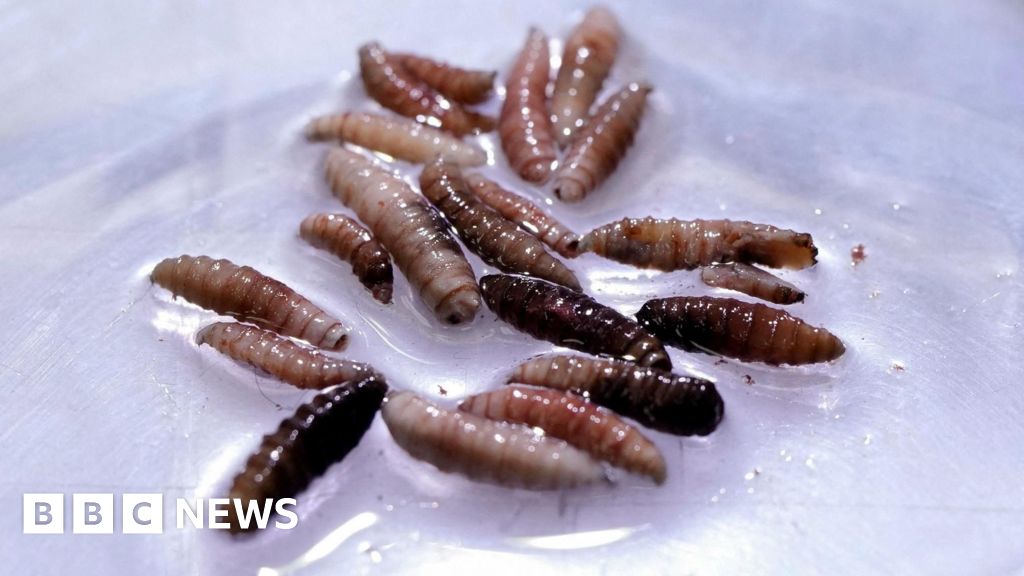NEW YORK (AP) — Health Secretary Robert F. Kennedy Jr.'s new vaccine advisory committee meets this week, with votes expected on whether to change recommendations on shots against COVID-19, hepatitis B, and chickenpox.
The exact questions to be voted on Thursday and Friday in Atlanta are unclear. Officials at the Department of Health and Human Services did not immediately respond to questions seeking details to a newly posted agenda.
But some public health experts are worried that the votes will — at a minimum — raise unwarranted new questions about vaccines in the minds of parents.
Perhaps even more consequential would be a vote that restricts a government program from paying for vaccines for low-income families.
“I’m tightening my seat belt,” said Dr. William Schaffner, a Vanderbilt University vaccines expert.
The panel, the Advisory Committee on Immunization Practices (ACIP), makes recommendations to the director of the Centers for Disease Control and Prevention on how already-approved vaccines should be used. CDC directors have almost always accepted those recommendations, which are widely heeded by doctors and guide vaccination programs.
Kennedy, a leading antivaccine activist before becoming the nation’s top health official, fired the entire 17-member panel earlier this year and replaced it with a group that includes several anti-vaccine voices.
Here’s a look at the three vaccines being discussed:
*COVID-19*
Before Kennedy was health secretary, ACIP would typically vote in June to reaffirm recommendations for shots against respiratory viruses that sicken millions of Americans each fall and winter. This past June, Kennedy’s ACIP voted to recommend flu shots for Americans but was silent on COVID-19 shots.
Days after Kennedy’s announcement, CDC officials clarified families could still get the 2024-2025 version of COVID-19 shots for their kids in consultation with their doctors. It’s now responsible for roughly half of childhood vaccinations in the U.S. each year.
However, the committee has not yet voted on whether to recommend this season’s COVID-19 shots or whether those shots should be covered by the VFC program.
*Hepatitis B*
Hepatitis B can cause serious liver infections. The virus can also be passed to a baby from an infected mother, and as many as 90% of infected infants go on to have chronic infections. Newborn hepatitis B vaccinations are considered a success, and no recent peer-reviewed research shows any safety problem with giving kids the shots on their first day of life. But Kennedy’s ACIP members suggested in June they wanted to revisit the guidance.
*MMRV*
Chickenpox was once a common childhood annoyance, causing an itchy skin rash and fever. The government first recommended that all children get a chickenpox vaccine in 1995, leading to a dramatic drop in cases and deaths. Today, most pediatricians suggest separate doses for the first shot but give the combined shot for the second dose.
Why revisit it now? “This version of the ACIP is an orchestrated effort to sow distrust in vaccines,” said Dr. Sean O’Leary of the American Academy of Pediatrics.
The exact questions to be voted on Thursday and Friday in Atlanta are unclear. Officials at the Department of Health and Human Services did not immediately respond to questions seeking details to a newly posted agenda.
But some public health experts are worried that the votes will — at a minimum — raise unwarranted new questions about vaccines in the minds of parents.
Perhaps even more consequential would be a vote that restricts a government program from paying for vaccines for low-income families.
“I’m tightening my seat belt,” said Dr. William Schaffner, a Vanderbilt University vaccines expert.
The panel, the Advisory Committee on Immunization Practices (ACIP), makes recommendations to the director of the Centers for Disease Control and Prevention on how already-approved vaccines should be used. CDC directors have almost always accepted those recommendations, which are widely heeded by doctors and guide vaccination programs.
Kennedy, a leading antivaccine activist before becoming the nation’s top health official, fired the entire 17-member panel earlier this year and replaced it with a group that includes several anti-vaccine voices.
Here’s a look at the three vaccines being discussed:
*COVID-19*
Before Kennedy was health secretary, ACIP would typically vote in June to reaffirm recommendations for shots against respiratory viruses that sicken millions of Americans each fall and winter. This past June, Kennedy’s ACIP voted to recommend flu shots for Americans but was silent on COVID-19 shots.
Days after Kennedy’s announcement, CDC officials clarified families could still get the 2024-2025 version of COVID-19 shots for their kids in consultation with their doctors. It’s now responsible for roughly half of childhood vaccinations in the U.S. each year.
However, the committee has not yet voted on whether to recommend this season’s COVID-19 shots or whether those shots should be covered by the VFC program.
*Hepatitis B*
Hepatitis B can cause serious liver infections. The virus can also be passed to a baby from an infected mother, and as many as 90% of infected infants go on to have chronic infections. Newborn hepatitis B vaccinations are considered a success, and no recent peer-reviewed research shows any safety problem with giving kids the shots on their first day of life. But Kennedy’s ACIP members suggested in June they wanted to revisit the guidance.
*MMRV*
Chickenpox was once a common childhood annoyance, causing an itchy skin rash and fever. The government first recommended that all children get a chickenpox vaccine in 1995, leading to a dramatic drop in cases and deaths. Today, most pediatricians suggest separate doses for the first shot but give the combined shot for the second dose.
Why revisit it now? “This version of the ACIP is an orchestrated effort to sow distrust in vaccines,” said Dr. Sean O’Leary of the American Academy of Pediatrics.


















